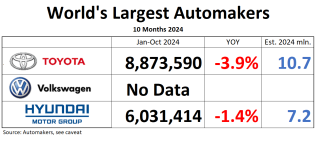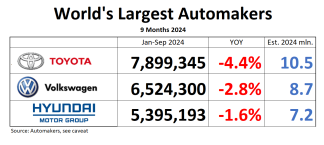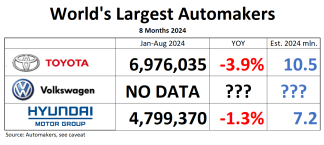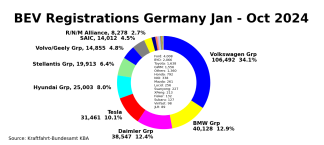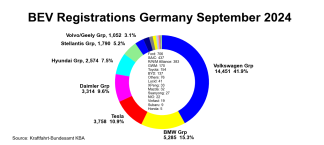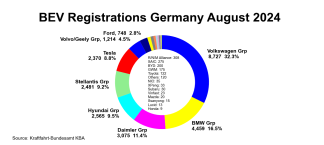
“No more concerns about range” Hoshino and Saikawa
Nissan, first mover in the electric vehicle space, plans for a major EV inflection point in the 2019/2020 time-frame. By that date, two factors will cause EVs go mainstream, the company said today.
- By 2020, strict greenhouse gas emission targets will begin to go in effect around the world, which can only be met with a significant increase of electric vehicles.
- At around the same time, batteries will be commercially available that double the range of battery-electric vehicles.
“The fuel consumption targets will become very stringent, and that will kick in at around 2019/2020, especially in the United States,” Nissan’s corporate officer Hiroto Saikawa told reporters at Nissan’s headquarter in Yokohama today. “Suddenly there will be surge of demand.” Nissan plans to ramp up its EV sales to 5 percent of the total, and to 10 percent “in the near future” Saikawa said. “And if we would use a wider definition of electrification and also count hybrids, more than half will be electric cars,” Saikawa added.
While still avoiding specifics, Nissan’s executives Saikawa and Akiko Hoshino today dropped unmistakable hints that after 2018, Nissan will have its super-battery ready. “By that time, we will have products where people don’t need to have any concerns about driving range,” Saikawa said.
End of last year, Nissan’s CEO said Nissan will have a battery that doubles the range. Nissan spokesman Jeff Kuhlman added that this battery will “soon take the issue of range off of the table.” On November 10, Nissan is expected to announce the 2016 Leaf with a range extended to 280 km, (according to the JC08 standard) up from 228 km in the current model. After today’s meeting, a 400km+ model by the end of 2018 seems to be highly likely.
Nissan is so confident of its technological moxie that it will base its complete Japanese marketing on EVs and autonomous drive, we heard today. Nissan will have true autonomous drive “before anyone else” Akiko Hoshino said today in a subtle put-down of wannabe autonomous tech.
